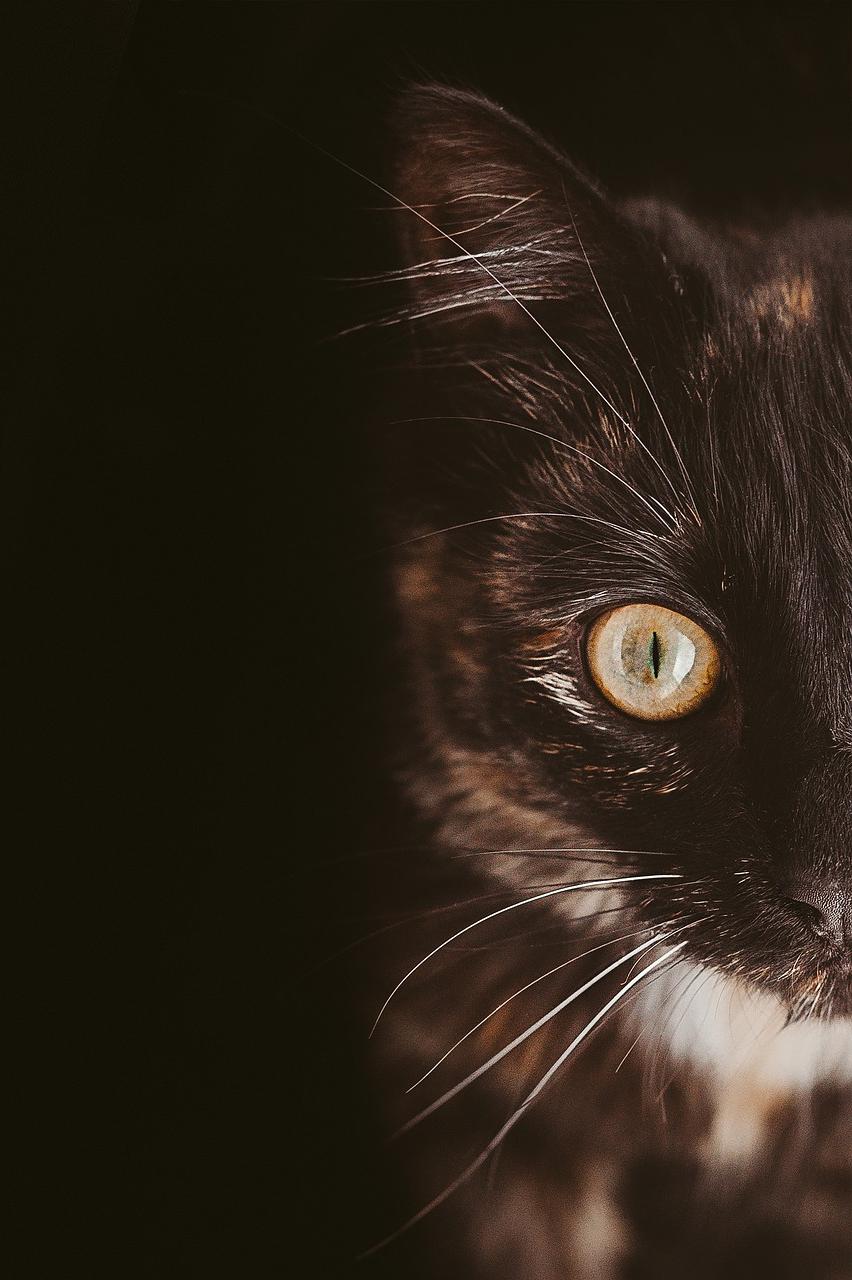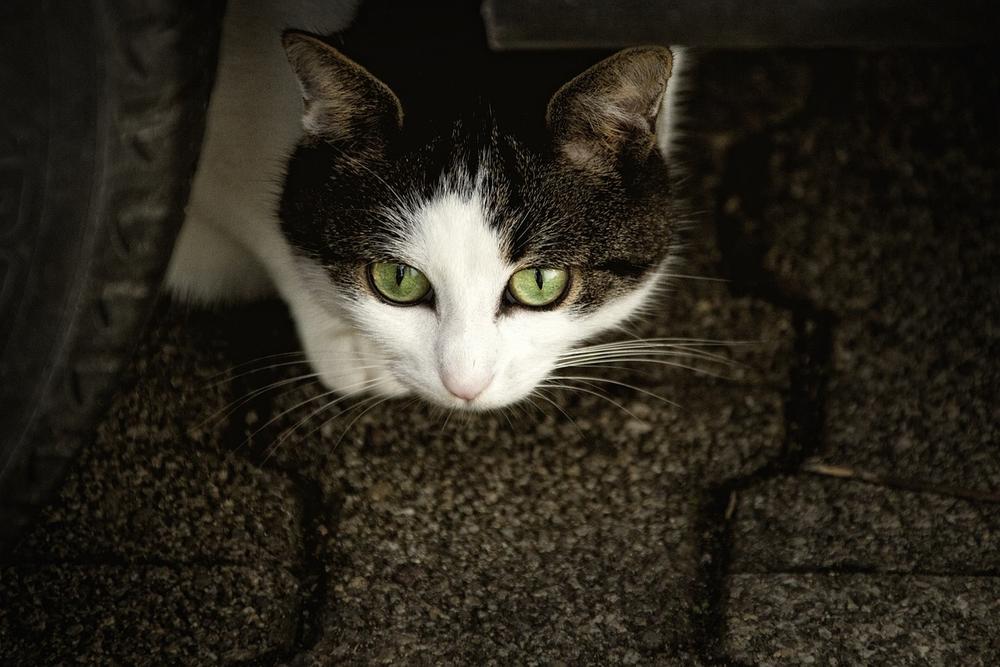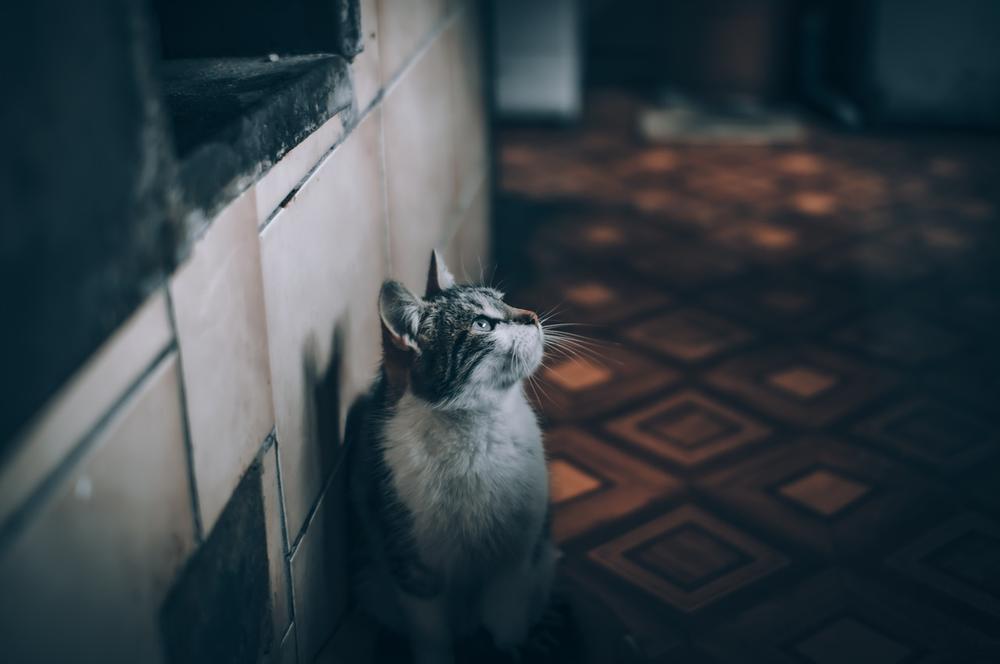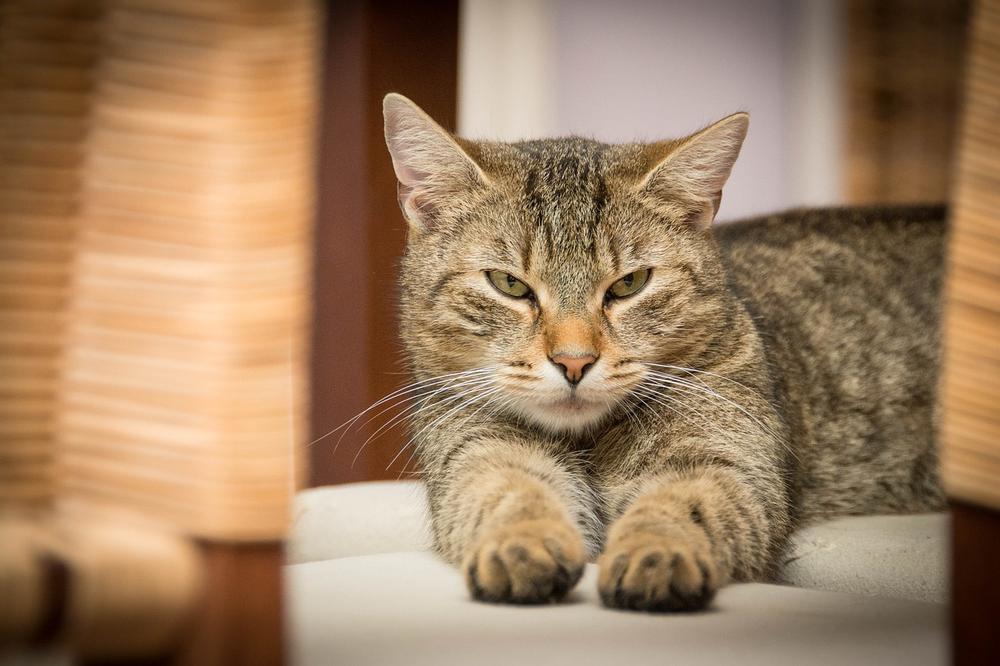Do Cats Have a Sense of TASTE? And How Refined Is It?

Curious about whether cats have a sense of taste?
Ever found yourself pondering that feline mystery while your whiskered companion leisurely lapped up their gourmet cuisine? 😺
Don't worry, you're not alone in your quest for answers!
We've all had those moments of curiosity, scratching our heads in wonder.
So, let's delve into the tantalizing world of feline palates and uncover the truth together.
Ready?
Let's begin.
Do Cats Have Taste Buds?
Cats do have taste buds, but they are located on the tip, sides, and rear of their tongue. Unlike humans, their taste buds are not scattered all over. Cats also have a strong sense of smell and prefer meaty flavors due to being obligate carnivores.
Cats do have taste buds, but they're not as sophisticated as yours.
Well, cats may not have the same refined palate as humans, but they still experience taste in their own unique way.
With that being said, cats possess five primary senses - touch, sight, hearing, smell, and taste.
They've got quite a few tools at their disposal!
However, when it comes to taste, cats have some differences compared to us.
Here's the thing:
Cats have taste buds, but they're not scattered all over their tongues like ours.
No, cats are much more particular about where their taste buds hang out.
You'll find their taste buds on the tip, sides, and rear of their tongue.
Those taste buds don't mess around. They're ready for any flavor that comes their way.
However, have you ever noticed cats grooming themselves?
Well, they use their main surface of the tongue for that - it's like multitasking for taste buds!
But let me tell you, cats are not just focused on taste alone.

Nope, they are all about that scent too.
Cats have an extra sense of smell called the Jacobson's organ, tucked away on the roof of their mouths. It helps them analyze intriguing smells, especially pheromones.
How fancy is that?
Now, because cats are obligate carnivores, their taste preference leans toward all things meaty. So, when choosing food for your beloved feline, consider a combination of wet and dry cat food to give them the protein they need. That will keep their taste buds satisfied!
On top of that, kitties have pretty impressive vision.
They can see a wide angle of their surroundings and detect motion with incredible precision.
But hey, they're not perfect either - cats can be a bit near-sighted and have a blind spot underneath their chin.
We all have our flaws!
Oh, and we can't forget about those magnificent whiskers.
Whiskers help cats navigate narrow spaces by serving as touch receptors. They've got 'em on their nose, paws, and even their fur contributes to their sense of touch.
So, while cats may not sit down for a fancy taste test like humans do, they still know what they like.
And that's part of what makes them the fascinating creatures we adore.
And if you're fascinated by the intricacies of cats' taste buds and their unique senses, you'll be intrigued by my article, Do Cats Eat Snakes.
Whether you've ever wondered about the potential health risks or precautions associated with cats and snakes, this guide has got you covered.
Satisfy your curiosity and delve into the mysterious world of feline preferences!
How Many Taste Buds Do Cats Have?
Cats have taste buds, not as many as us though.
In fact, cats only have around 470 taste buds, which is way fewer than us humans.
But wait, there's more!
Not only do cats have fewer taste buds than us, but they also have fewer taste buds than dogs!
Poor cats, always missing out on the taste bud party.
Now here comes the tricky part...

Because cats have such a limited number of taste buds, giving them medication can be quite the challenge.
Their taste receptors are super strong, and that bitter pill flavor can be a real turn-off for your feline friend.
But cats have a secret weapon up their sleeve (or rather, in their mouth)...
They've got something called the Jacobson's organ located on the roof of their mouth. It helps them taste food in a whole different way.
Fascinating, right?
But what about the specific flavors cats can taste?
Well, here's where things get interesting for our feline friends.
Can Cats Taste Sweet?
Cats lack taste buds for sweetness
Cats, you know, are really interesting.
When it comes to taste, they're quite different from us humans.
Unlike us, cats can't taste anything sweet.
It's a bit sad for them because they'll never know the joy of savoring a piece of that delicious chocolate cake you're having.
Cats can sense ATP in meat
However, cats have taste receptors for other things.
They can actually sense adenosine triphosphate (ATP), which is found in meat.
So even though they can't enjoy the sweetness, they sure know how to appreciate the savory goodness of their favorite meaty treats.
Cats are more into fat than sweetness
But here's something interesting. Have you ever noticed your furry buddy eyeing your ice cream or drooling over your frosting?

Well, let me explain:
It's not about the sugar rush; it's about the fat content.
Cats are naturally drawn to high-fat foods and, of course, meat. That's why they can't resist the temptation of sweet snacks. It's not the sweetness itself, but the rich and creamy texture that drives them wild.
If you catch your feline companion sniffing around your dessert, remember to offer them sparingly as it might not be the healthiest choice for their diet.
In the end, cats have fewer taste buds compared to us humans.
Their limited ability to taste sweetness just reinforces their love for meaty treats.
But did you know that cats are also incredibly sensitive to bitter flavors?
It's fascinating how their taste buds help them avoid toxins, and I can't wait to share more with you!
Can Cats Taste Bitter?
| Bitter Taste in Cats | |
|---|---|
| Bitter Receptors | Cats have a highly developed sense of taste, particularly for bitter flavors. Their well-developed bitter taste receptors allow them to detect and avoid consuming bitter-tasting toxins and poisons. Compared to dogs, cats possess more of these receptors, which helps them steer clear of potential dangers. |
| Behavioral Responses | When cats encounter something bitter, they may exhibit certain behavioral responses. These can include lip smacking, drooling, or even spitting out the offending substance. Cats' sensitivity to bitter tastes works as an instinctual defense mechanism to prevent them from ingesting harmful substances. |
| Preference for Taste | Despite their ability to detect bitter tastes, cats generally prefer foods with a strong umami flavor, which is savory and often found in protein-rich foods. This preference is thought to be rooted in their evolutionary history as obligate carnivores. However, individual cat preferences may vary, and some cats may display a fondness for other tastes such as sweet or sour. |
| Training and Conditioning | Through training and conditioning, it is possible to influence a cat's taste preferences. By gradually introducing foods with different flavors, including bitter ones, cats can learn to tolerate and accept these tastes. This can be helpful when providing medication or incorporating a balanced diet. However, caution should be exercised to ensure their nutritional needs are met and they are not exposed to harmful substances. |
| Taste Sensitivity Variability | It is important to note that taste sensitivity can vary between individual cats. While most cats have a keen sense of taste for bitter flavors, some may show less sensitivity. Additionally, factors such as age, health, and genetics can influence a cat's taste preferences and their reaction to bitter tastes. Observing and understanding your own cat's preferences and sensitivities will help in providing them with a suitable diet and ensuring their well-being. |
Cats, similar to your algebra teacher, possess a strong disdain for bitter flavors that causes them to recoil and give disapproving looks.
Their taste receptors, particularly those responsible for detecting bitterness, are exceptionally refined. Cats have an equal number of these receptors as their canine companions.
However, cats outshine others in the competition of taste receptors by having not one, two, or three, but seven receptors specifically tuned to detect bitterness!
Why is this significant?
Well, get ready because it's truly fascinating.
This ability gives cats an advantage in avoiding ingestion of perilous toxins and other unpleasant substances that carry a bitter taste.
While humans might associate the taste of rich dark chocolate with pleasure, cats do not share our fascination.
Absolutely not.
To them, anything bitter is perceived as an imminent danger, a warning sign indicating poison or harm.
This heightened sensitivity is crucial for the survival of cats as it helps them avoid potential predators who may disguise themselves as prey.
So, if you are considering offering your feline companion something bitter, think twice.
Over numerous generations, cats have become wise to the taste of toxicity, which is excellent news for keeping your beloved furry friend safe and secure!
Can Cats Taste Sour?
Cats, being cautious by nature, experience a sensation of sourness when dining on substances that could be dangerous.
In their effort to avoid ingesting toxic substances, cats perceive sour flavors as a warning sign and quickly develop an aversion towards them.
What's more, our feline friends typically display a dislike for consuming cold food fresh out of the refrigerator.
The temperature alteration seems to tamper with their taste preferences, inviting hesitation instead of diving headfirst into a meal.
Understanding these quirks about your furry companion can help you provide them with the most enjoyable and safe dining experiences.
Can Cats Taste Spicy?
As a blogger who cuts straight to the chase, I must inform you that cats cannot taste spicy food. 🚫
In fact, not only do they not enjoy it, but it's also not healthy for them.
So, keep those spices away from your feline friends!
You know, despite all the rumors about cats having a sixth sense, there's no concrete proof of that. They pretty much rely on their typical five senses just like us.
With that being said, it's best to avoid introducing anything too spicy or overwhelming to their taste buds.
Here are a few reasons why:
- Cats have a more sensitive palate than humans, so what may be mildly spicy to us can feel burning hot to them.
- Spicy foods can cause digestive upset and gastrointestinal issues in cats, leading to discomfort and potential health problems.
- Some ingredients commonly found in spicy foods, like onion and garlic, can be toxic to cats.
- Cats lack the necessary receptors in their taste buds to fully appreciate the flavors of spicy food anyway.
So, stick to pet-friendly treats and meals to keep your furry friend happy and healthy.
You wouldn't want to see them suffer after gobbling up something too spicy, would you?
Cats' Capabilities in Detecting Tastes
| Taste | Description |
|---|---|
| Salty | Cats have taste buds that can detect saltiness, allowing them to perceive and differentiate salty flavors in their food. |
| Sour | Cats also have taste buds that can detect sourness. Their sensitivity to sour flavors helps them identify and avoid spoiled food. |
| Bitter | Cats possess taste buds that can detect bitterness. This helps them avoid potentially harmful substances that often have a bitter taste. |
| Umami | Cats have taste buds that can detect umami, which is a savory and meaty flavor. They are naturally attracted to foods with umami taste. |
| ATP flavors | Cats can recognize certain flavors that are associated with ATP (adenosine triphosphate), a molecule found in all living cells. This helps them identify fresh and high-quality food sources. |
| Sweet | Cats lack taste buds that can detect sweetness. Unlike humans, they do not have a strong preference for sugary flavors as they cannot taste them. |
Cats have taste buds that can detect flavors such as salty, sour, bitter, and umami.
Their taste buds are well-suited to pick up on these tastes.
But here's the interesting part:
Cats cannot taste sweetness.
It's true, they miss out on that.
So if you were planning on giving your cat sugary treats, you might want to reconsider.
Now, cats' sense of taste is actually enhanced by their keen sense of smell.
They have two scent mechanisms:
Olfactory receptors and a vomeronasal organ for pheromone detection.
Quite fancy, isn't it?
This combination of taste and smell allows cats to experience flavors and aromas in a unique way.
They can even use their Jacobson's organ to "smell-taste," opening them up to a world of essence flavors that we humans can only imagine.
However, taste alone doesn't determine what cats enjoy eating.
Other factors come into play when it comes to their food preferences. Limited treat consumption and regular vet visits can have an impact.
And get this – mimicking the temperature of freshly-killed prey can also be important.

I know, it may sound a bit gruesome, but cats are born hunters, so food that resembles the real deal appeals to them.
When it comes to cat food, protein is crucial.
Ideally, it should be rich in animal proteins and low in carbs to support your furry friend's health.
So, let's discuss the options available.
There are dry foods (also called kibble) with a high dry matter content.
Then there's canned cat food, which can be refrigerated for up to three days.
Lastly, there are semi-moist foods that have a longer shelf life.
Oh, did I mention that cats have strong senses of smell too?
They can actually see ultraviolet light, which is quite impressive.
And those whiskers?
They use them to track prey.
Smart, huh?
Before I finish, I wanted to mention one thing – just because a white cat has blue eyes doesn't mean it has hearing problems.
That's just a myth, so no need to worry if you have one of these beautiful creatures at home.
Well, that's all for now, folks.
Stay curious and keep exploring the fascinating world of cats! 😺
Cats' Surprising Sense of Taste
Key Takeaways:
- Cats have five main senses: touch, sight, hearing, smell, and taste.
- Cats have a unique sense of taste due to being obligate carnivores.
- Cats have fewer taste buds compared to humans and dogs.
- Cats taste food through the Jacobson's organ located on the roof of their mouth.
- Cats cannot taste sweetness but can taste ATP found in meat.
- Cats can detect and dislike bitter flavors.
- Cats have a natural aversion to sour flavors and cold food.
- Cats should not be given spicy food as they do not enjoy it.
- Cats have a well-suited sense of taste and smell, enhancing their ability to perceive different flavors and scents.
- Cat food should be rich in animal proteins and low in carbohydrates.
- There are three main types of commercially available cat food: dry, canned, and semi-moist.
- Cats have strong senses of smell, can see ultraviolet light, and use their whiskers to navigate.
And that wraps up today's article.
If you wish to read more of my useful articles, I recommend you check out some of these: Can Cats Drink Rice Milk, Can Cats Drink Lactose Free Milk, Can Humans Drink Cat Milk, Can Cats Drink Distilled Water, and Can Cats Drink Goat Milk
Talk soon,
-Sarah Davis